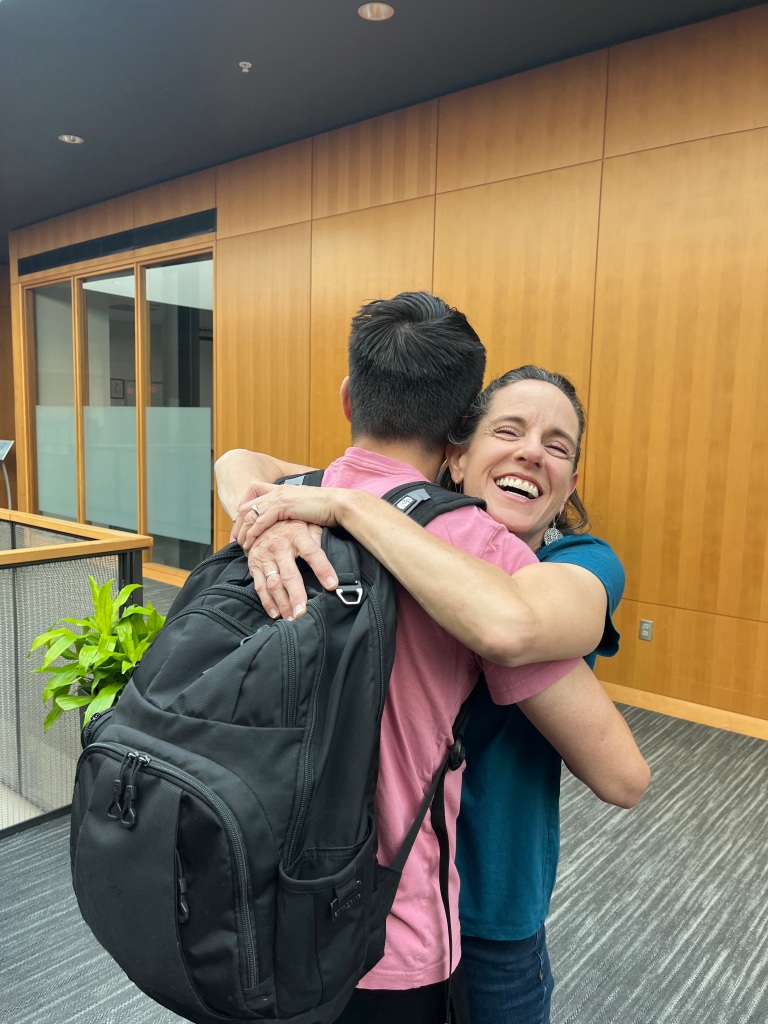As I had mentioned, Greg, Chad and I had begun our trip visiting the Sachsenhausen Concentration Camp Memorial. Of course, it was difficult not to leave Sachsenhausen somber and in a place of great sorrow over the evils that had been done to and against the Jewish people. When we would travel to the Wittenberg Castle Church and see where the Reformation had begun in earnest, we were quite amazed that we were in that place where Martin Luther had pinned the 95 Theses on the north door of the Castle Church. The impact of the Protestant Reformation cannot be overstated. It was the occasion by which profound corruption was exposed in the church. It would also lead to the spread of increased literacy rates and the encouragement for individuals to read the Bible for themselves, rather than have the meaning of the Scriptures always mediated through church authority. Marriage would become valued as a holy institution even for those who might serve God as clergy and ideas around freedom of conscience and the inherent dignity of the individual as someone who could have direct communion with God were lifted up. The Reformation would also bring about an understanding of the Gospel that stated without question that one is justified by faith alone in Christ alone and by His grace alone, not by human merit. The impact of the Reformation cannot be overstated. If you want to read more, Heiko Oberman has a book on this very topic. However, there is also a very dark cloud over the one who is often described as the “First Man of the Reformation.” Martin Luther had some very anti-Jewish sentiments as a man of his times. And as a way of seeking to own this history, Greg, Chad and I discovered as we came to what was once the Wittenberg Castle Church where it all began, now All Saints’ Church, that right in the entry way of the church is a description of what is described as the “Anti-Jewish Relief” which was supported by Luther. This particular description was made available in the entryway of the church foyer. As the article states, “In 1543 he (Luther) addressed the Protestant rulers with the demand that they enact anti-Jewish laws or strengthen them. Under National Socialism, Luther’s writings were prominently featured and were part of the regime’s anti-Semitic mobilization.”
How do those who so deeply appreciate the impact of the Reformation make sense of this dark history? Well, the first step is to recognize it and own it as the folks in Wittenberg have done. Well done. But the second step is NOT as we so often do in our “chronological snobbery” (C.S. Lewis) and outrage, cancel or erase from our history books, these impactful figures who had such great blindspots. As Aleksandr Solzhenitsyn once said, “the dividing line between good and evil cuts across every human heart.” In fact, it would be the Reformation that would in time bring us the doctrine of “Total Depravity,” that sin has infected every part of the human heart (not to be confused with “Utter Depravity” that says humans are as bad as they possibly could be). It has always been at the heart of the Christian confession to say, “Lord, have mercy on me a sinner.”
If you have read this far, without giving yourself to outrage, then you might consider this article and video that, without making excuses for Luther’s wrong and sinful views, nonetheless, seeks to distinguish between anti-Semitism and anti-Jewish belief (which aren’t exactly the same). The short of it is that if we dug long and hard enough in even those we consider “human heroes,” we will see that they are all a product of their times and also limited by severe blindspots and even sinful habits, beliefs and patterns. I remember Pastor Tim Keller saying some years ago, “Most of us find questionable and even unacceptable beliefs and blindspots in our grandparents however beloved they might have been. What will our grandchildren say about us and our blindspots?” The question at hand is, will we identity with the one who calls out to God to have mercy on him or instead will we stand with the Pharisee who says “thank God I am not like this evildoer?” See Luke 18:11.
Finally, I think these realizations that even the greatest individuals in history were deeply sinful and flawed, should make us more vigilant, humble and repentant ourselves. We might reflect this Advent season on Frederick Dale Bruner commenting on the name given the Christ-child born into the world, one who will “save ‘His people’ from their sins” (Matthew 1:21):
Matthew’s Jesus will not rivet his people’s attention on an external enemy as most radical movements do, nor will he forge a burning hatred for enemies by which to ignite a revolution. Jesus concentrates the fire of almost his entire Gospel on his church’s sins. Hell in Matthew, for example, is not a place by which the external enemies of the people of God are threatened; hell is always the existential threat for precisely those who think they are the people of God. This Gospel teaches profound self-criticism.
Might we be truly a confessing people, grieving over the sins of God’s people, but also seeing that we have such a great Saviour and Salvation that has come into the world! If anything, the Reformation itself would have us become deeply self-critical of ourselves and even the Church, that we might find our hope in Christ alone (sola Christus) and seek not the glory humans but of God alone in all things (Soli Deo Gloria).


Leave a comment